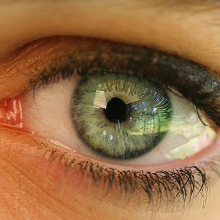Millions invested in brain research across the globe. It's the decade of the brain. But how will the results shape our future societies?
In this episode

03:32 - The BRAIN Initiative
The BRAIN Initiative
with Congressman Chaka Fattah, US House of Representatives
Meet the man responsible for putting neuroscience on the American political agenda.  We find out how 500 million dollars will be spent over the next decade. Ask why more has not been invested? And find out what the Initiative hopes to achieve...
We find out how 500 million dollars will be spent over the next decade. Ask why more has not been invested? And find out what the Initiative hopes to achieve...
Hannah - Hello. I'm Hannah Critchlow reporting from Washington DC for this special Neuroscience podcast in partnership with the International Neuro Ethics Society. We'll be taking a journey into the future to explore how brain findings may shape our future society.
Last year, both the US and European Union announced investments of over 1 billion pounds in research attempting to understand how our brains work. A similar level of funding was injected over a decade ago for the sequencing of the human genome. With new information, comes ethical issues on how to use it. In the case of human genome companies filed patents for the intellectual property of our genes. Insurance companies proposed premium prices for those carrying genes predisposing to disease, and governments are using our data for their research.
As this decade kick-starts the era of the brain, cash injections will bring a revolution in neuro technology that will allow us to peer into the human as never before and to understand, and manipulate our behaviour. Who will own that data and how should we use the information?
In Washington DC, just around the corner from the White House, the International Neuro Ethics Society hosted their 2014 meeting to discuss these issues and more. In this special Naked Neuroscience series supported by the Wellcome Trust, I'm reporting from the meeting to explore how brain findings may shape our future society. In this episode, we meet the congressman responsible for setting neuroscience on the top of the American political agenda.
Chaka - On the brain side, we're almost nowhere. Unlike other medical research, only 1 percent of what will work in an animal circumstance will work in a human being when we come deal with brain illnesses. So the research the research doesn't translate well. In other areas, about 50 percent of the research, animal to human translates. Where people see success, they're willing to invest more and that's part of the challenges. We have to be prepared to invest and fail in order to be able to invest and succeed.
Hannah - Ask the man heading the European human brain project. Is this brain mission akin to a space race competition or will countries work collaboratively?
Henry - There's no time for competition in the brain. There is time for collaboration. Collaboration is essential. The problem is too vast, too complex. It's too diverse that we cannot afford to approach the brain in isolation in a silo.
Hannah - And we discuss the ethics of using these new neuro technologies, including the example of a man who used the new treatment for depression of electric brain stimulation and developed and unintended side-effect and was constantly electrifying his brain.
Stephen - The device becomes an addictive stimulation to the brain. So cocaine, narcotics, they are addictive because the affect certain brain structures and so one issue with brain stimulation is that there may actually be effects that were unanticipated. And so, a contract between the patient and the physician I think is very important.
Hannah - All to come... I first met Congressman Chaka Fattah who was responsible for initiating this investment in brain research in the States.
Chaka - I think it's critically important that we seize the moment to grapple with some of the 600 plus diseases and disorders of the brain. We have over 50 million Americans suffering from everything, from Alzheimer's to epilepsy, bipolar disorders, schizophrenia, you go through the laundry list. We need to make more progress to improve the life chances of these Americans, and that's the impulse for my work. We want to make a difference, and I believe that we will.
Hannah - America has raised over 200 million Great British pounds or the equivalent of that in dollars for the brain initiative. Who is investing in this, and what will the money be spent on? What's the ultimate goal?
Chaka - Well we have a multi-faceted effort, right? So we have the brain initiative which is about mapping the brain but in truth, it is about developing tools, developing the technology to help us understand how the brain actually functions. We today can't even tell you the actual number of cells in the brain. We have very little idea about the inter-connectedness in the sections of the brain, and we have a lot of work to do. This new effort about mapping the brain... this is the first time we're taking on the initiative of really trying to understand the brain, how a healthy brain should function.
Hannah - And you describe the brain as one of the final frontiers in scientific research and so you're going to be helping to invest in technologies that will allow us to peer between the space between our ears. So, the human genome project is a really good example of big investments, so 1.5 billion British pounds were invested in this in order to sequence the human genome. And this was completed, or the first draft, was completed over a decade ago. How has that translated into treatments for humans? How has that helped society?
Chaka - It's extraordinary. The human genome is a good example in which government investment, it took almost 3 billion dollars to be able to do it, right? But now we're at a point where for about a thousand dollars, you can have your own genes analyzed and know what may be some of the ways to go about dealing with disease in your own body and it revolutionized medicine. One of the interesting things about human genome is that started in our Department of Energy. It didn't start in the National Institute of Health. They said, "Oh! That's not a great idea."
Hannah - And so, the brain initiative really is a true collaboration between the Federal Drugs Agency, for example, and DARPA who are involved in defence and military, and also IARPA which is involved in intelligence, a number of other national bodies that are investing in this brain initiative to help us to understand the brain a bit more. But it is only 200 million Great British pounds. Do you think we need something more along the lines of the human genome project which, as you said, cost about 1.5 billion British pounds or 3 billion dollars. Do we need more investments in order to make headway as it were in this brain initiative?
Chaka - I think we do but we should understand that this is an annual appropriation and that when we look at the costing out of what we're doing, NIH says it's going to be about 4 billion dollars over the next, you know, 11 years. So it is a relatively expensive proposition.
Hannah - Breast cancer alone has had investments of the equivalent of 400 million Great British pounds in the last year by America. And yet this only affects 1 in every 16 people so there seems to be a disparity between the amount of funding that's available for cancer or breast cancer, for example and mental health or brain conditions which affect 1 in 4 people worldwide. So why is there that disparity?
Chaka - We need to be investing more overall in medical and scientific research, period. So it's not a matter of doing less, we should be doing more and a lot of these categories. The difference in cancer is we've had so much success. We've beaten cancers completely. We have 800 different treatment and pharmaceutical approaches that deal with cancer. On the brain side, we're almost nowhere unlike other medical research only 1 percent of what will work in an animal circumstance, will work in a human being when come deal with brain illnesses. So the research doesn't translate well. In other areas, about 50 percent of the research, animal to human translates. Where people see success, they're willing to invest more and that's part of the challenge, is that we have to be prepared to invest and fail in order to be able to invest and succeed.
Hannah - And I suppose generating the basic technologies that will allow us to understand how those hundred billion brain cells are connected with those hundred trillion of connection. So you're funding in how a brain works in the first place and how we can look at it which would hopefully generate more funding for new treatments.
Chaka - We've been studying of flies for decades and we can't tell you exactly how they work or a mouse brain. We have a lot of work to do. The brain is, I think, extraordinarily complex piece of machinery. The former President of Israel said that we have these human brains that has allowed us to build super computers but hasn't given us enough information yet to understand how our own brain works. And we have to kind of turn inwardly and focus on this if we're gonna solve some of these challenges.
Hannah - So in terms of the human genome project some companies have filed patents for intellectual property for the genetic information that's come out of it. Do you think the same thing might happen with information about our brains and behaviour?
Chaka - Well, litigation is part of a civilized society in which people will have different points of view, end up in courts of law, they try to settle them. So it could happen but it shouldn't in any way dampen our enthusiasm and I think at the end of the day, what we need to be doing from government finance resource research is to make sure that it's open and available to everyone. No one has any intellectual property control over it.
Hannah - Congressman Chaka Fattah.

09:29 - The Human Brain Project
The Human Brain Project
with Professor Henry Markram, École polytechnique fédérale de Lausanne, Switzerland
Over 1 billion Euros invested by the European Union. Their goal? To simulate the  human brain on a supercomputer. We meet the man in charge of the project.
human brain on a supercomputer. We meet the man in charge of the project.
I next met with Professor Henry Markram who is leading the human brain project in Lausanne, Switzerland where the European Union have invested almost 1 billion pounds to develop technologies with the goal to simulate the human brain on a super computer. I started by asking Henry why this whopping investment is happening now, what it hopes to achieve and if he thinks it will be successful?
Henry - Well, the goal of the project is three-fold. One is to establish the technology that we need to integrate data from the genetic level, all the way to the behavioral level. We do that using computer models. The second goal is to be able to analyze clinical data and to cluster it so that we can have a much more objective way of classifying brain diseases and point to targets so that we will be able to develop drugs more effectively. Giving varied tools to pharmaceutical industry so that they can actually reengage in discovering of new drugs. And the third initiative is to develop new kind of computing technologies based on how the brain functions. We are largely as software initiative building tools to get to this future. The future that we see of understanding the brain is to be able to understand it as an integrated system.
Hannah - We spoke earlier with the congressman on the American brain initiative. Now will you be working in synergy, in collaboration with the American funded project or will it be more like a space mission or competition if you'd like.
Henry - I think that there's no time for competition in the brain. There is time for collaboration, collaboration is essential. The problem is too vast, too complex, it's too diverse, too specialized that we cannot afford to approach the brain in isolation in a silo. We absolutely have to collaborate. In terms of the US initiative, they will be developing technologies that will allow you experiment and map the brain and get a much deeper understanding of the actual structure of the brain. In terms of the human brain project, we will have the tools that will allow integrating that data in a much more effective way in the context of all the other data being generated around the world, so it's entirely complimentary.
Hannah - And how will you ensure that there is synergy and collaborative complimentary research going on? How will you facilitate that?
Henry - The direction is to establish what we see as a global network of brain initiatives where different countries, the Japanese are launching a brain initiative around the non-human primates, the Chinese are launching an initiative also by the end of the year. The Australians, Canadians, we think that many countries are going to be raising the priority for brain research built on this momentum established by the US brain initiative and the European brain initiative. This Collaboration framework is something that would allow much easier implementation between scientists. There's an open data policy. This is one of the key things that we see as an impediment to success, is that we actually have to make data that is being collected by scientists all over the world open to all. So, nobody is gonna to "own" data. It's gonna be a community resource worldwide, international resource and I believe the US brain initiative has it in their mandate to make the data open. So, of course scientists come up with inventions, new algorithms, new analysis methods, and they will file patents on those particular ones and they will drive commercial industries. If it's a new target for a disease, there will be initiatives around that and hopefully that does spark an industry around the basic and clinical science of the brain.
Hannah - And Henry, your goal is to create a human brain using a super computer. Could you flip your results the other way around and turn iPhones into a cognitive thinking being?
Henry - Flipping it around, of course with that, we will have a deep understanding of circuitry, of mechanisms, principles of operation, of computing that aim and will use them to implement them into computer chips. These are, however, vastly reduced forms of the brain. They're not going to be anything like a brain on a chip for many, many decades, perhaps centuries. So, they will be powerful the same way a calculator can do better calculation than we can. This does not mean they are more advanced that human beings. It just means that we are making certain kinds of analyses much more accessible and put them on your Iphone of the future.
Hannah - Henry Markram,

14:29 - How will findings shape society?
How will findings shape society?
with Professor Stephan Hauser, Presidential Commission for the Study of Bioethical Issues, Professor Walter Koroshetz, National Institute of Neurological Disorders and Stroke
A special Presidential Commission has been set up to discuss how brain findings will  shape our future society.
shape our future society.
Hannah - Henry Markram, and also joining the discussion are two people who are involved in a special commission advising Barrack Obama how neuroscience findings may influence society to pre-empt some of the ethical issues that's raised by the results. Now.
Stephen - I'm Stephen Hauser, I'm a member of the presidential commission for the study of bio-ethical issues. So, there are whole host of issues that the commission and society at large needs to undertake and tackle. These include such areas as brain privacy, particularly as our imaging tools become more sophisticated, cognitive enhancement, things like personality, sociability, violent impulses, etcetera.
Hannah - So you're describing things like, for example, taking chemicals in order to alter how smart we are, our IQ, or even taking chemicals or some kind of brain electrical stimulation that may alter how moral we are, and also imaging techniques that could tell whether we are, for example, lying or telling the truth.
Stephen - Yes, although I would make the point that the current time all of these technologies have on incremental value. What we need to have is a two-fold mission. First, to communicate clearly the true value of the therapies we now have available. And second, anticipate and prepare for those that will perhaps be transformational but that are not yet currently available.
Hannah - And it was mentioned during the meeting today that there's a case of a patient who had an electrical stimulation to his nucleus accumbens, kind of pleasure-reward area of the brain and he had control of how much that area was being electrically stimulated. And so, he kind of lied about how much he was stimulating it in order to give himself lots and lots, and lots of pleasure. So this brings into issue, kind of who has control over the application of some of these findings. Would it be that general doctor or would it be the patient themselves?
Walter - Hi, I'm Walter Koroshetz, I'm the acting director for the National Institute of Neurological Disorders and Stroke. I think that's a really important question. In the worst case scenario, which I think you were hitting on is that the device becomes an addictive stimulation to brain. So, cocaine, narcotics, they are addictive because they affect certain brain structures and those same type of problems one can get into with stimulation is one would with drugs. So one issue with brain stimulation is that there may actually be effects that were unanticipated and so a contract between the patient and the physician I think is very important to put down the parameters about who is gonna be controlling. What is the purpose of the device? But there is precedent there when we give people opiates for pain, there is a contract about what are the risks of extended use. And I think those same kind of conversation would have to go on with regard to brain stimulation as well.
Hannah - And there was also mention of the possibility in the future of having bio markers. So, biological markers for how intelligent someone may become when they grow up and whether they may be a good match for marrying another person almost like a personality bio marker test. Is this really feasible for the future, and if so, what can we do to consider the ethics of this information now?
Walter - There are different types of people but so far that is kind of a gestalt that we have but the basis of that gestalt is related to our brain circuitry. So as we are able to interrogate brain circuitry, we are going to be much more predictive about what makes us different from another person, how we cluster and what that information should be used I think is uncharted territory and discussions need to be started now. I would however say as many of technologies we are talking about are new, there are precedents. So IQ tests, for instance, have been validated in millions of people to develop this intelligent quotient which associated with certain behaviors and successes and we have come to some kind of a way of using those in education and in life and so I think that's the early (18:56.7) is going to be just have to be expanded as we get into these new tools.
Hannah - Stephen.
Stephen - Yes. I think another very interesting area is where the boundaries are between maintaining function, alleviating disease and enhancing function. The boundaries are not always crystal clear. A circuit that is responsible for pleasure can also be a critical clue to understanding the circuitry of craving, addiction, and multiple other adversive behaviors.

19:29 - Smart Drugs, anyone?
Smart Drugs, anyone?
with Professor Stephen Hauser, Presidential Commission for the Study of Bioethical Issues, Professor Walter Koroshetz, National Institute of Neurological Disorders and Stroke, Professor Henry Markram, the Human Brain Project.
Students taking smart pills to try to improve their school grades. Are they dangerous? What will be the long term consequences? We discuss the issues. And we ask how can scientists help discuss the implications of their results with the public, and the policy makers.
Hannah - Another issue that was raised at the meeting was smart drugs or cognitive enhancers. Traditionally used on prescription to help those with attention deficit hyperactivity disorder or ADHD would focus an attention or to help boost memory for those with dementia. These drugs are now also being bought off-label over the internet by students hoping to achieve a higher grade in their exams. One in ten students at Cambridge University, for example, admit to taking them. Scientists have no idea what the long-term effects these drugs might be on the healthy adolescent brain. We discuss the issue surrounding smart drugs, starting with Henry.
Henry - You know, I think what we've done to appreciate about the brain is that it's not like the heart or the liver, or the kidney. It is an organ on a trajectory. It's like a rocket that's moving through life and actually anything deflects a rocket's direction. If you don't understand that then you don't feel immediately where your brain is going to go because you're taking some kind of drug but you could actually end up in a completely different trajectory, and I think that it is really important that we understand the tampering with the brain to change its direction could have very deep consequences.
Hannah - Stephen?
Stephen - Doctor Markram's point is extremely important. We need to recognize that all of the technologies and even traditional drugs that we are speaking about today are likely interim products that will be replaced by more selective and perhaps less invasive approaches. And that a key ethical need is to be to identify these long-term benefits and risks because we are living for many decades hopefully, particularly when we consider administering these therapies to a youngster. This is another great opportunity of these two initiatives to begin to have the capability to pool health outcomes related data across many individual databases to connect interventions with long-term outcomes in ways that we never could have before.
Hannah - Walter.
Walter - Just to add, the issue of the education of the populace is just so important because I mean I think already we've seen groups that can try and take advantage of a message that is not mature and yet recruit large numbers of people to join their efforts with the promise that they can enhance brain function. And it's something that I think the populace might grab on to unless they are educated about risk-benefits and not being duped in many instances, and now it's so important to get this discussion going now when Doctor Markram's iPhone comes out and people are wearing them constantly to inform my interaction with other human beings for instance or to inform my brain about exactly how I should be feeling or behaving at this point in time. Those tools that are coming, if discussion is not held five to ten years beforehand then it will be a lot of confusion, potentially a lot of backlash even when they do come into play.
Hannah - And finally Stephen, so the issue of education. Are you recommending to the president that there's a flurry of scientists that go into schools to talk about issues of the brain and how we understand the brain. How are we addressing this issue with the public?
Stephen - This is a multi-faceted strategy. It needs to be and certainly in the United States public education remains a huge problem. So it certainly includes asking scientists to come and speak to different groups of public stakeholders from young school to people living in assisted care facilities, but an equally part of that is that scientists learn how to communicate a message effectively simply and clearly. We are going to propose to the president, numerous ways to improve public discourse around science and neuroscience in particular and as doctor Koroshetz stated so clearly, also to advice on ways to deal with the baloney in the media and there ways to have a fact check to mobile technology in order to provide access for all of us into the most reliable interpretations of neuroscience discovery.
Walter - I think the media is potentially one of the biggest dangers in this whole thing because they do tend to propagate a lot of the baloney, and it is important to separate that out. In the European human brain project, one of the things we're doing is to actually work with science museums. There are about three thousand science museums around the world and we're working with them to how we can establish a permanent area in all science museums around the world. And were already discussing with the US brain initiative how we can all work together in all different initiatives in different countries to use this format to try to get people to get the information about how the brain works, about diseases so we can demystify some of the brain diseases, about the kind of technologies that are out there and to get it into a format where they can probably engage with it and actually get a deeper understanding.
Hannah - Stephen?
Stephen - And maybe one additional area is the importance for those of us in the neuroscience community to communicate effectively and clearly with policy makers. In the past, there has sometimes been the promise or the hype even within the neuroscience community. The optimism, the deliverables that maybe were not achieved might be achievable for initiatives that would then be supported by the government. And it's very important that neuro scientists modulate down the hype along with the rest of us.
Hannah - Well, that's all we have time for in this special episode of Naked Neuroscience. Reporting for the International Neuroethics 2014 meeting and hosted at the AAAS or the American Association for the Advancement of Science in Washington, DC. Thanks to all those who took part - Congressman Chaka Fattah, Henry Markrams, Stephen Hauser, and Walt Koroshetz. In the next episode, we'll be hearing from DARPA, the Defense Advanced Research Projects Agency. They're funding brain research and we'll be asking should robots replace humans in the frontline for warfare? Should governments wipe their secret service agents memories clean after they've completed their missions? And should we implant positive memories into veterans who return from combat? Join us again for this special Naked Neuroscience series to open your mind.
- Previous Robots in Society
- Next The fight against Ebola










Comments
Add a comment